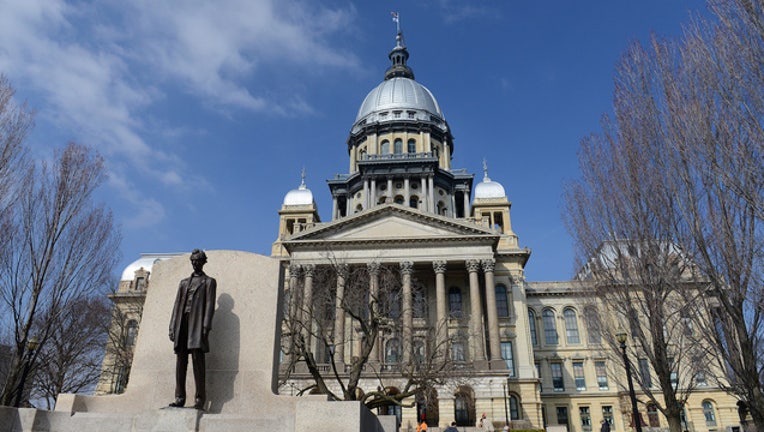Illinois debt could provoke dispute with FBI

(Illinois Springfield/Flickr)
SPRINGFIELD, Ill. (AP) - Illinois, on the cusp of a second year without a state budget, counts among its many unpaid bills one that threatens to provoke a dispute with the nation's top crime-fighting force.
Documents obtained by The Associated Press through the Freedom of Information Act show that the deadbeat state owes $3 million to the FBI for processing fingerprints and conducting background checks for professional licenses and permits. The debt is old enough that it could be turned over to the federal government's collection agency — the Treasury Department.
The delinquent payment is just the latest unexpected consequence of a stalemate between the Republican governor and Democrats controlling the Legislature. The gridlock has left Illinois without a budget since July 1 and exacerbated a long-standing backlog of debt. As of Tuesday, the state had more than $7 billion in unpaid bills.
"The breadth of the issues covered by the budget impasse never ceases to amaze me," said Rep. Elaine Nekritz, a Democrat from the Chicago suburb of Northbrook and chairwoman of the House Judiciary Committee on civil matters.
Gov. Bruce Rauner, a millionaire businessman in his first term, is holding out for changes in law to cut business costs and restrict the power of labor unions. Democrats say consideration of Rauner's business and political agenda should take a back seat to taming a multibillion-dollar deficit through spending cuts and tax increases.
The fingerprinting money has already been set aside. There's nearly $19 million in an account used to pay for FBI fingerprint expertise. But without a legislative appropriation, no one has any authority to spend the money.
The FBI says states rarely fall more than four months behind in payments, but it has never cut services, and it has not stopped examining Illinois fingerprints.
A spokesman for the agency's Criminal Justice Information Service, Stephen Fischer, said the agency is exploring "alternative collection and processing options" to continue serving Illinois without additional expense. He did not elaborate.
Ken Zercie, who retired as laboratory director for the Connecticut Department of Public Safety, said the importance of verifying identity and criminal backgrounds means it's a safe bet that the Justice Department won't shut the door on Illinois.
"That would be kind of illogical given the state of everything," said Zercie, a vice president of the International Association of Identification. "It's a public-safety issue."
This isn't the first time the budget crisis has caused headaches for law enforcement. The AP reported in April that the secretary of state's police force had to carry cash from driver's license facilities for four months after an armored-truck company stopped work until it got paid.
Rep. Robert Pritchard, from the small town of Hinckley, about 50 miles west of Chicago, said he's more worried about unpaid human-services agencies shutting their doors. The ranking Republican on the House State Government Administration Committee urged Democrats to accept a short-term budget pitched by Rauner.
The FBI processes 260,000 sets of Illinois fingerprints annually in criminal background checks for those seeking jobs such as school bus driver or private detective or applying for permits to carry concealed firearms or cultivate medicinal marijuana.
Illinois' last fingerprint payment to the FBI was for $313,000 on July 23 to cover costs for June — the final month of the previous fiscal year, according to state records.
One of the oldest forms of scientific identification, fingerprinting remains the most reliable, and the FBI has 90 million sets of prints on file, said Charles Walsh, a New Hampshire private forensic consultant who began a 30-year FBI career as a fingerprint technician in 1968. Today, the agency processes 3 million fingerprints a day, Walsh said.
But even with ever-improving technology, examination is still a costly, labor-intensive process.
While it takes just 3.4 seconds to electronically scan fingerprints and match them to those on file with a 98 percent degree of accuracy, the results could still produce as many as 20 possible matches, Walsh said.
"It's still a human technician who has to make the identification," he said. "That's where your money is going."
___
Contact Political Writer John O'Connor at https://twitter.com/apoconnor . His work can be found at http://bigstory.ap.org/content/john-oconnor .
___
Associated Press researcher Rhonda Shafner in New York contributed to this report.

